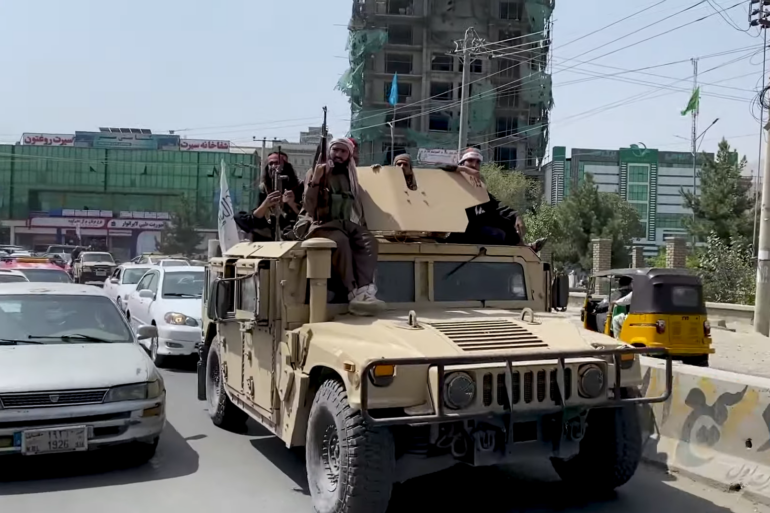The Taliban government on Sunday flatly rejected President Donald Trump’s call for the United States to reclaim Bagram Air Base, once the centerpiece of America’s longest war, underscoring the enduring costs of President Joe Biden’s withdrawal four years ago.
Speaking Saturday, Trump renewed his push for Washington to reestablish a military presence at Bagram, signaling the strategic importance of the sprawling facility, which lies just an hour’s flight from China’s nuclear weapons hub. “We’re talking now to Afghanistan,” Trump said, without elaborating on discussions. Asked if American troops might be sent in to seize the base, he responded, “We won’t talk about that. We want it back, and we want it back right away. If they don’t do it, you’re going to find out what I’m going to do.”
By Sunday, the Taliban responded with a categorical rejection. Zabihullah Mujahid, the group’s chief spokesman, urged Washington to adopt what he described as “realism and rationality.” Writing on X, Mujahid insisted Afghanistan had pursued “an economy-oriented foreign policy” and constructive ties with all states. But he said Kabul’s independence and territorial integrity remained nonnegotiable.
“It should be recalled that, under the Doha Agreement, the United States pledged that ‘it will not use or threaten force against the territorial integrity or political independence of Afghanistan, nor interfere in its internal affairs,’” Mujahid declared. “The U.S. needs to remain faithful to its commitments.”
Pressed by the Associated Press, Mujahid declined to explain why Trump believed the United States could force a return to Bagram.
The Taliban defense ministry also weighed in. “Ceding even an inch of our soil to anyone is out of the question and impossible,” Fasihuddin Fitrat, the ministry’s chief of staff, told Afghan media in a broadcast speech.
The timing of the rebuff highlights a continuing humiliation for Washington. In August of last year, the Taliban staged a military parade at Bagram, parading U.S. hardware left behind during Biden’s withdrawal.
Trump has never wavered in his assessment of that exit, calling it “gross incompetence” that left America weakened and its adversaries emboldened.
During a recent visit to Britain, Trump suggested that Afghanistan’s mounting economic troubles could open the door to new negotiations. “We’re trying to get it back because they need things from us,” he said, hinting at leverage the United States could apply over the Taliban government, which remains mired in crisis and still struggles for international legitimacy.
Though the United States and Taliban have no formal diplomatic ties, contacts have continued. In March, the Taliban released an American tourist who had been abducted two years earlier, the result of talks with U.S. hostage negotiators.
They also disclosed reaching a prisoner exchange deal with American envoys, releasing photographs of Foreign Minister Amir Khan Muttaqi meeting with Trump’s special envoy for hostage response, Adam Boehler.
But the Taliban’s Sunday response underscored its hard line. The once-dominant U.S. stronghold in Central Asia remains in the hands of America’s adversaries — a symbol, Trump argues, of what was squandered in 2021.
[READ MORE: Kilmeade Counters Trump on Kimmel, but Both Agree Ratings Tell the Story]



